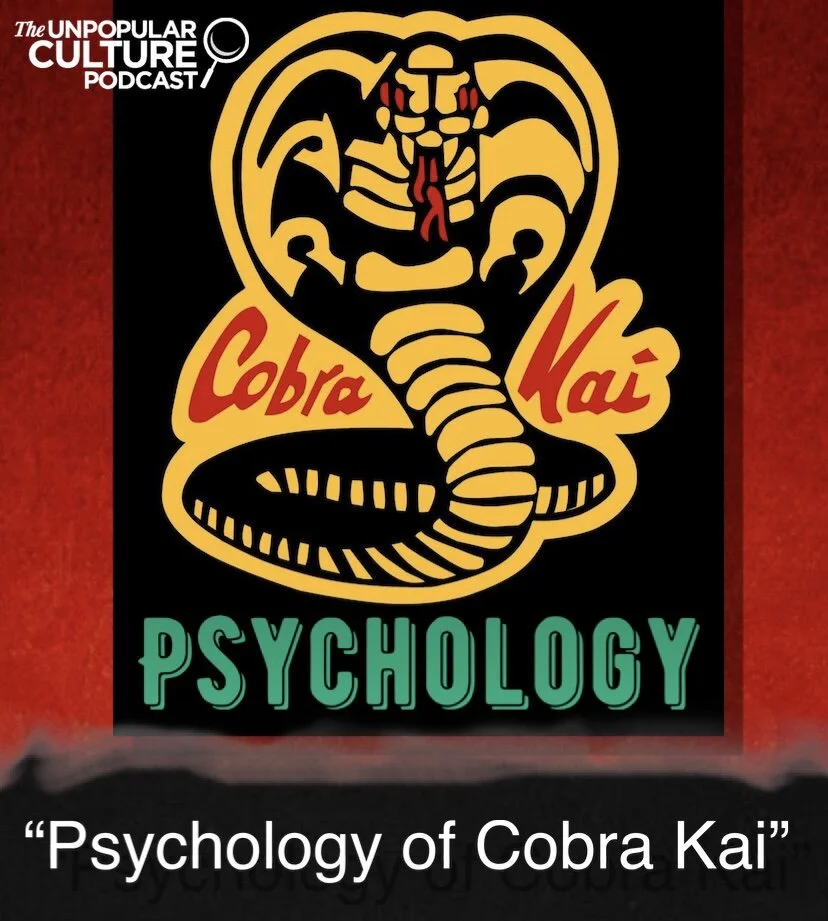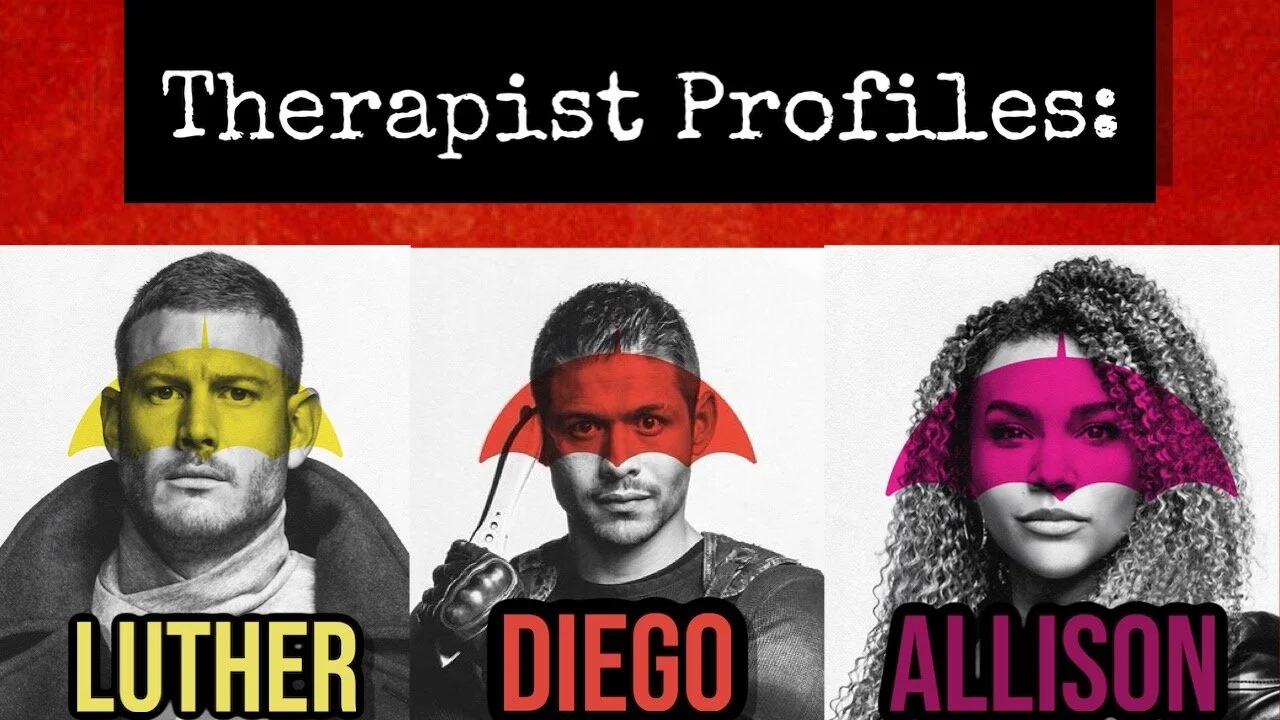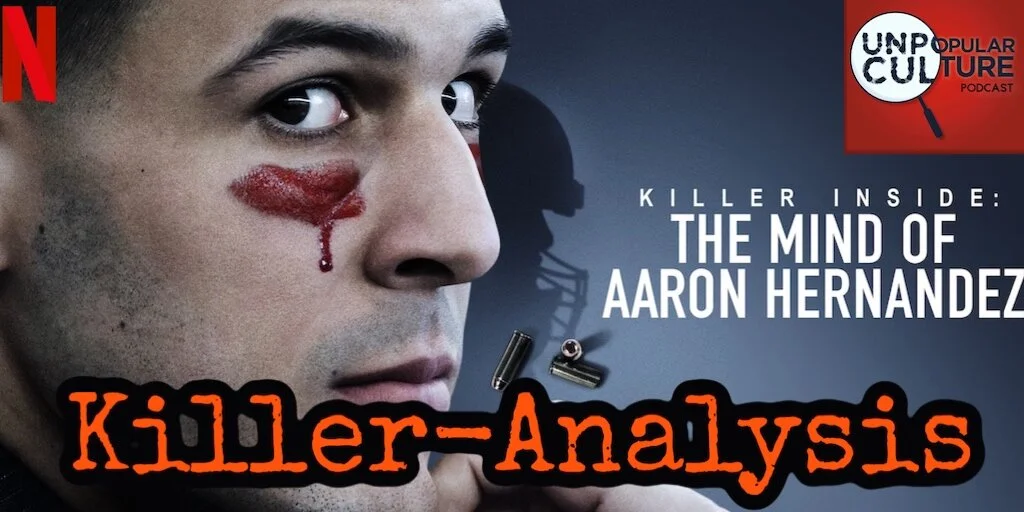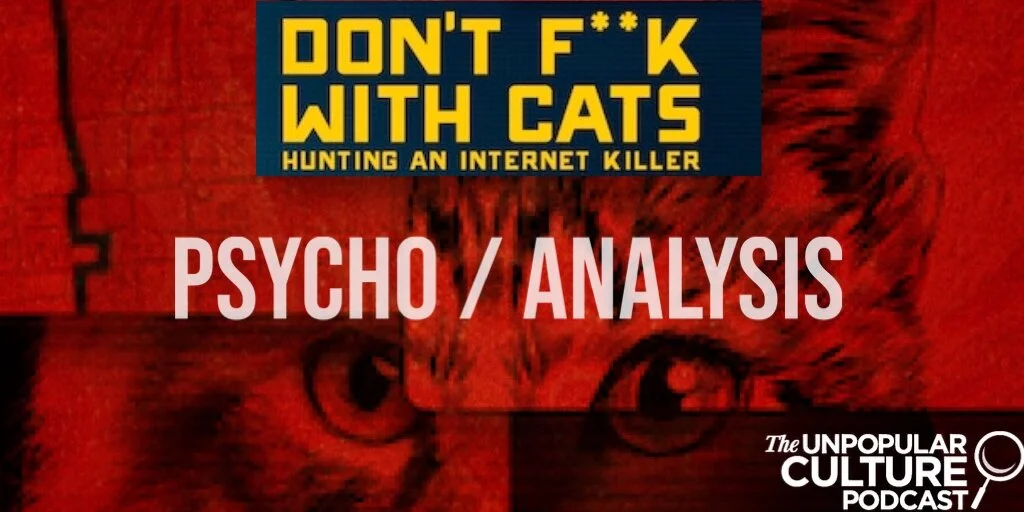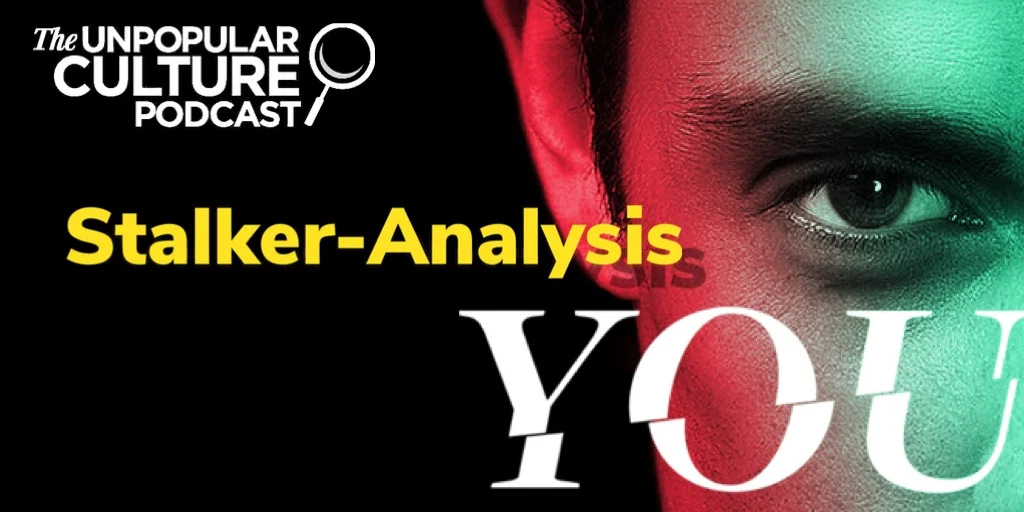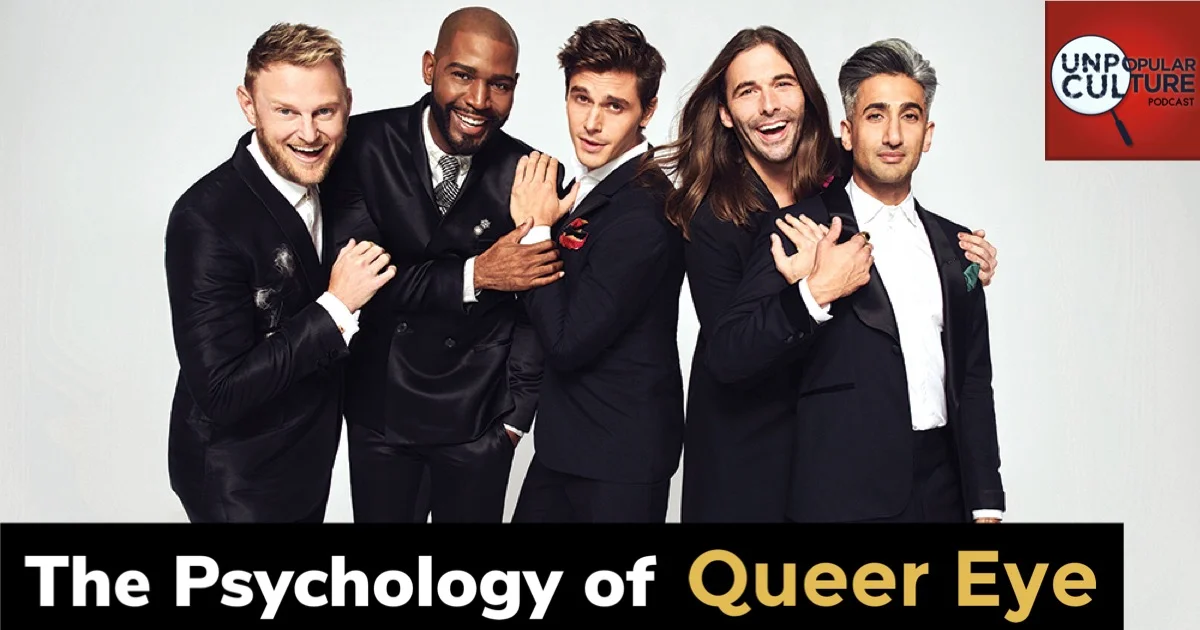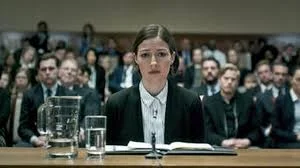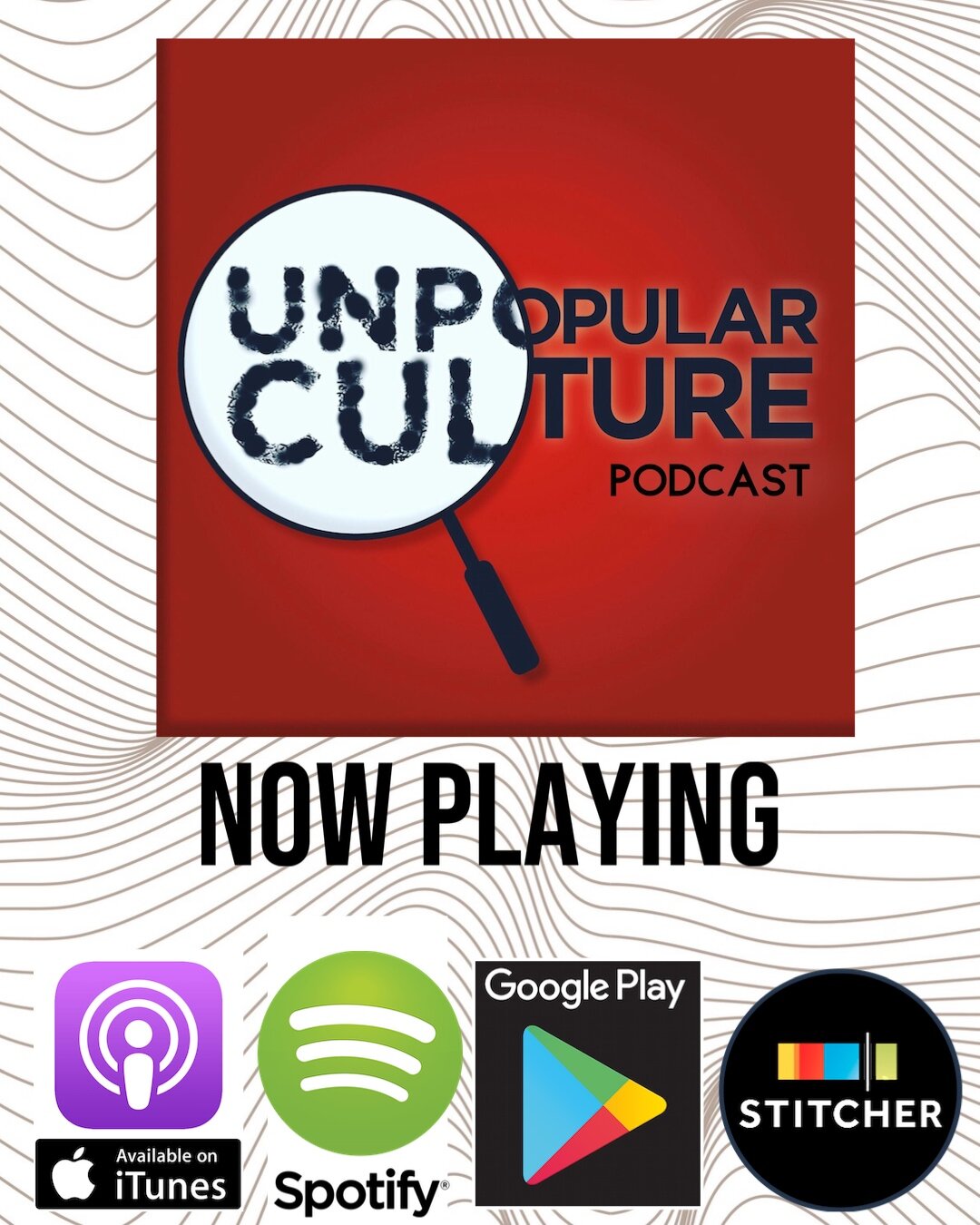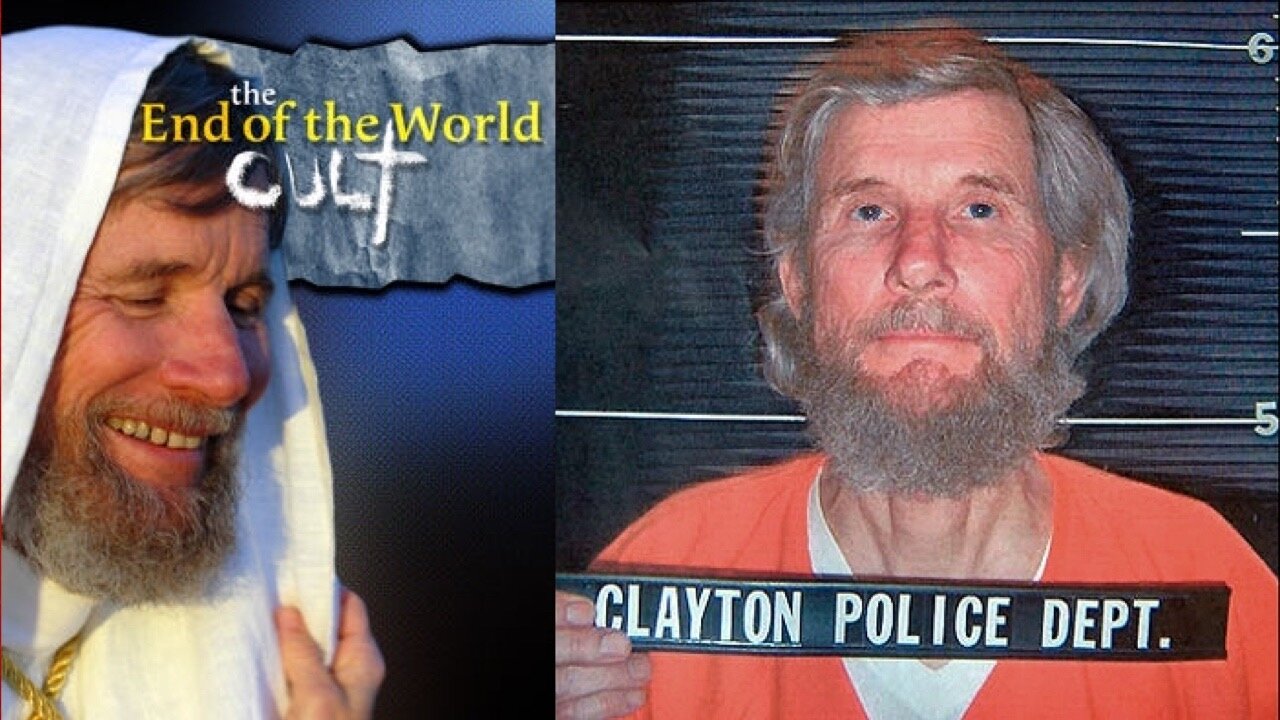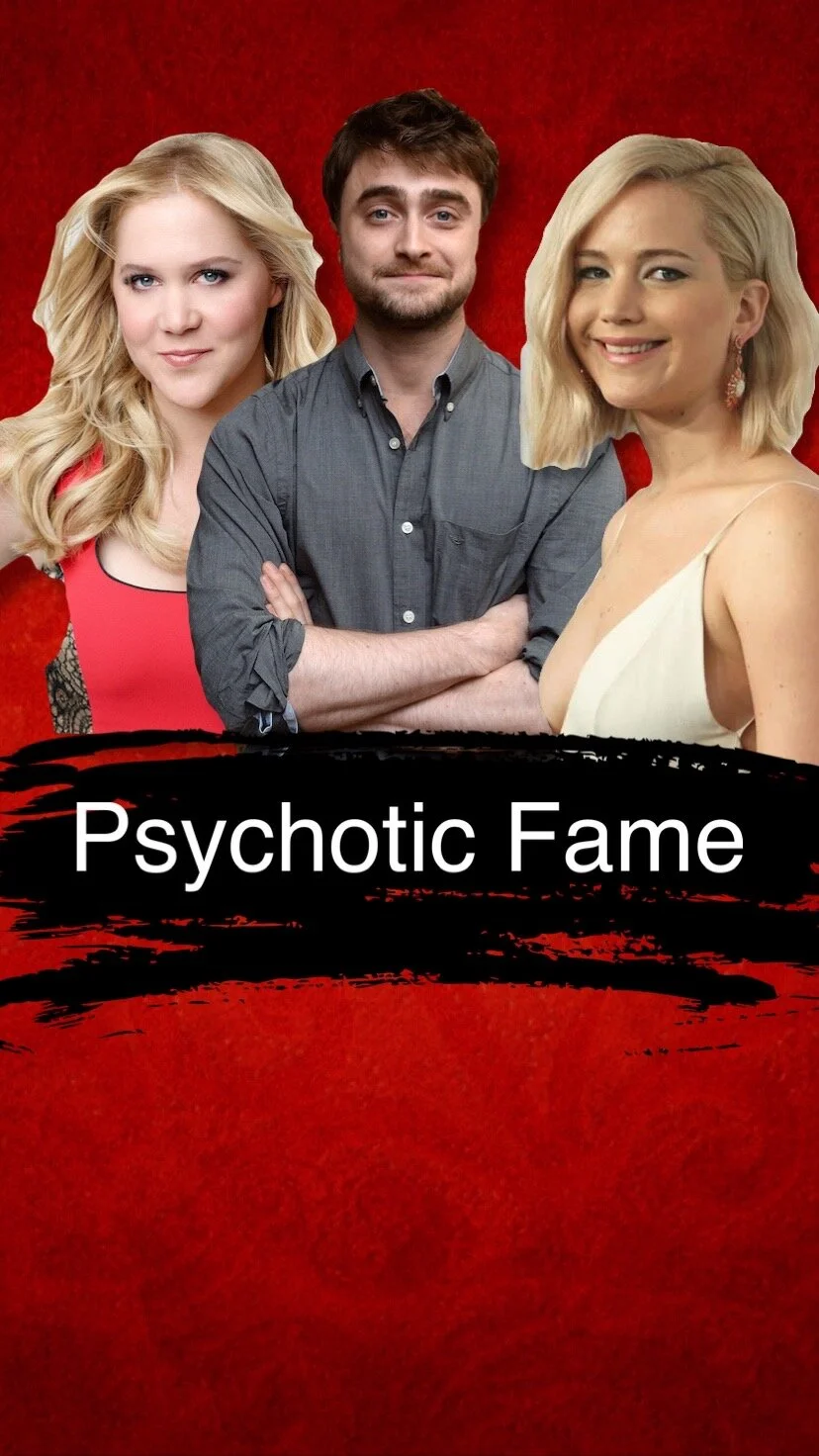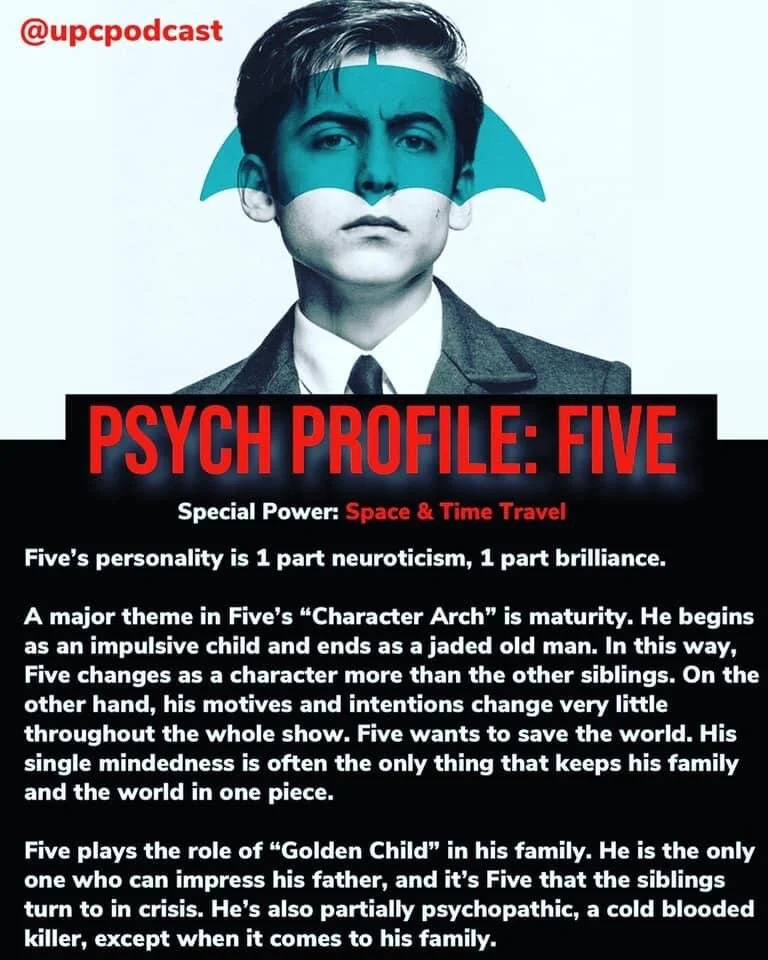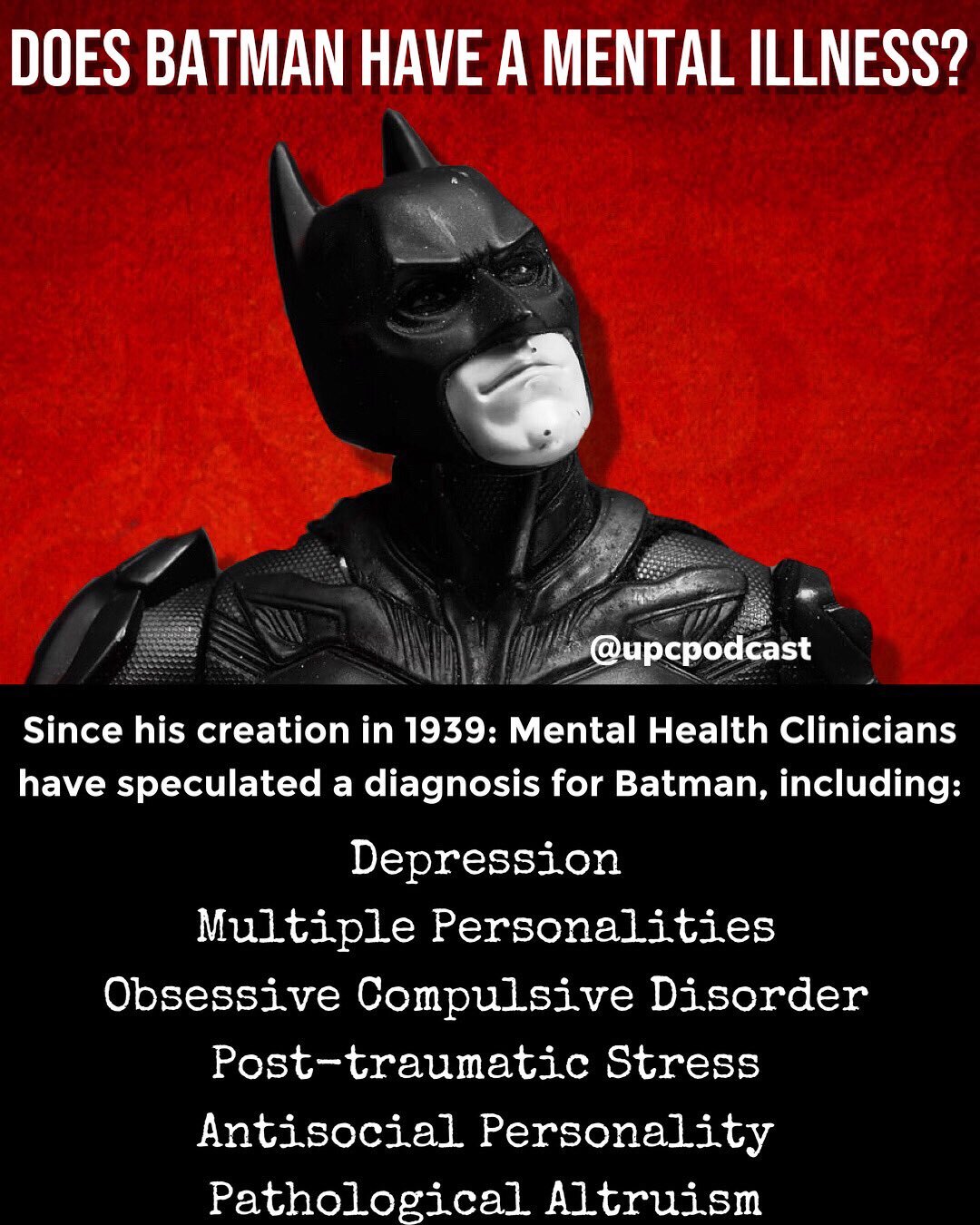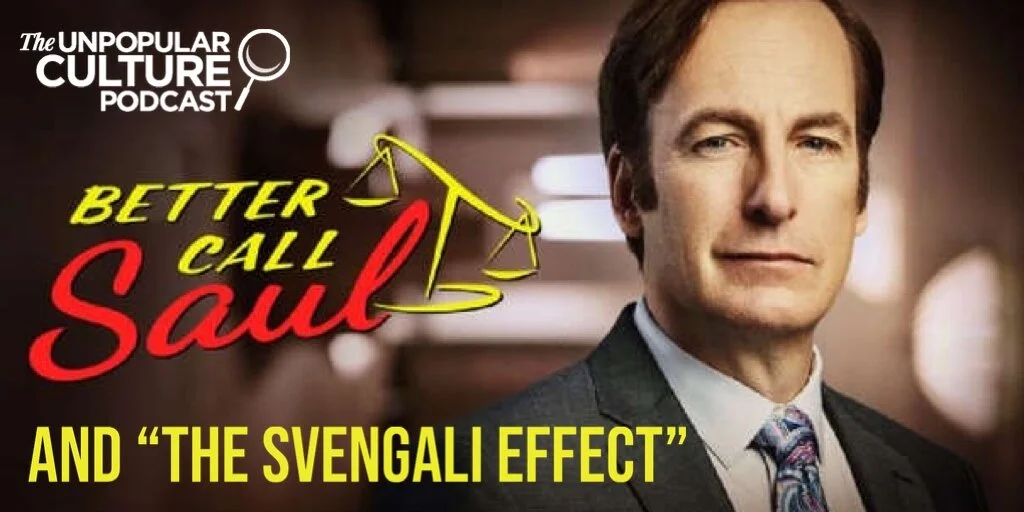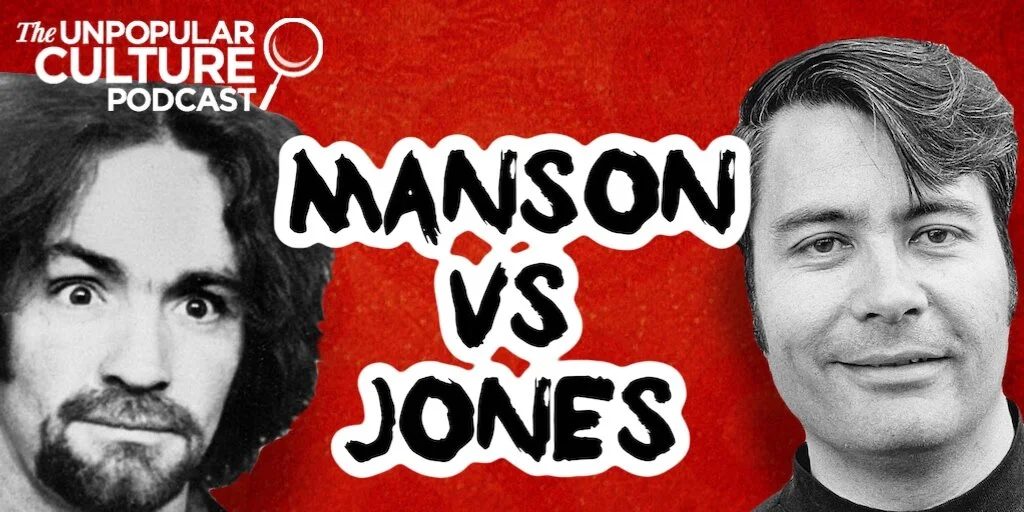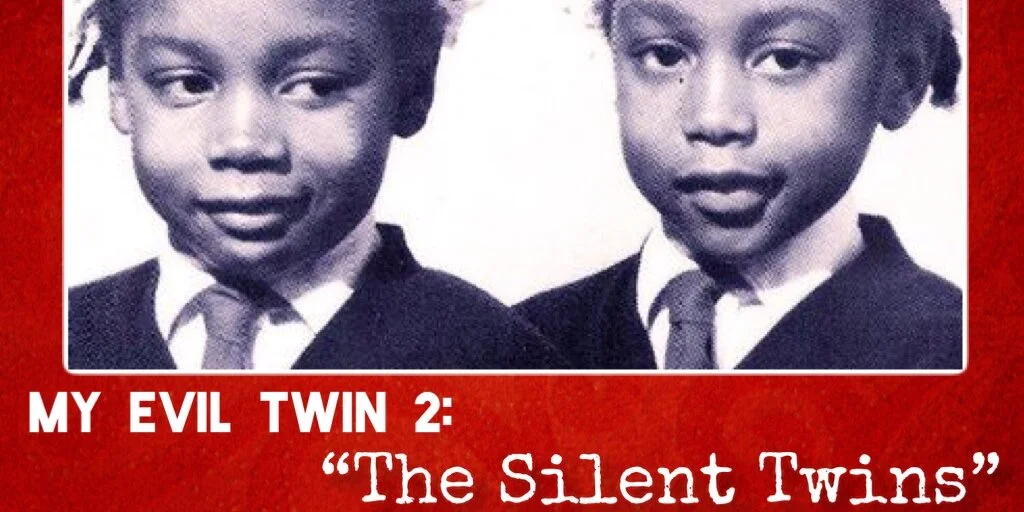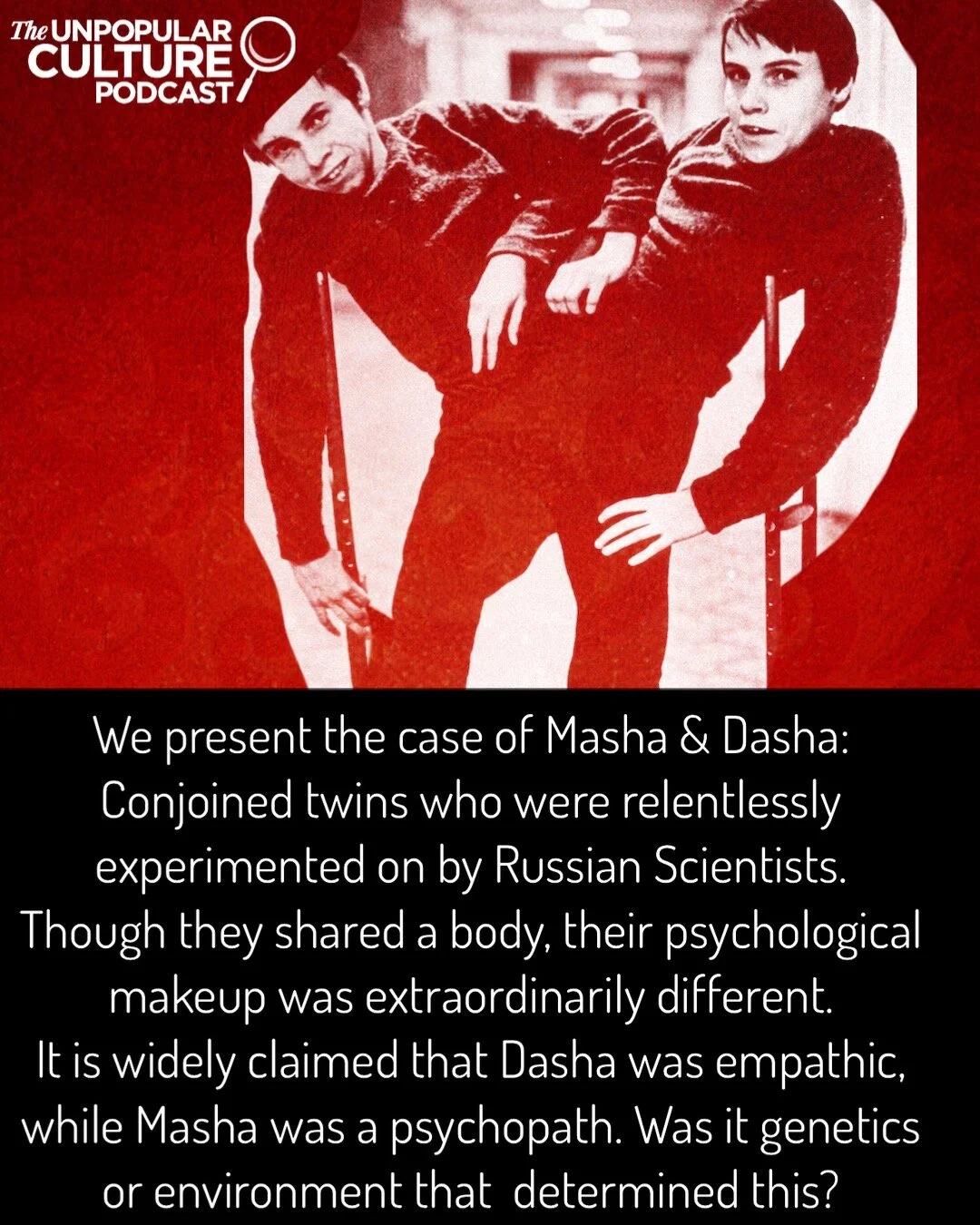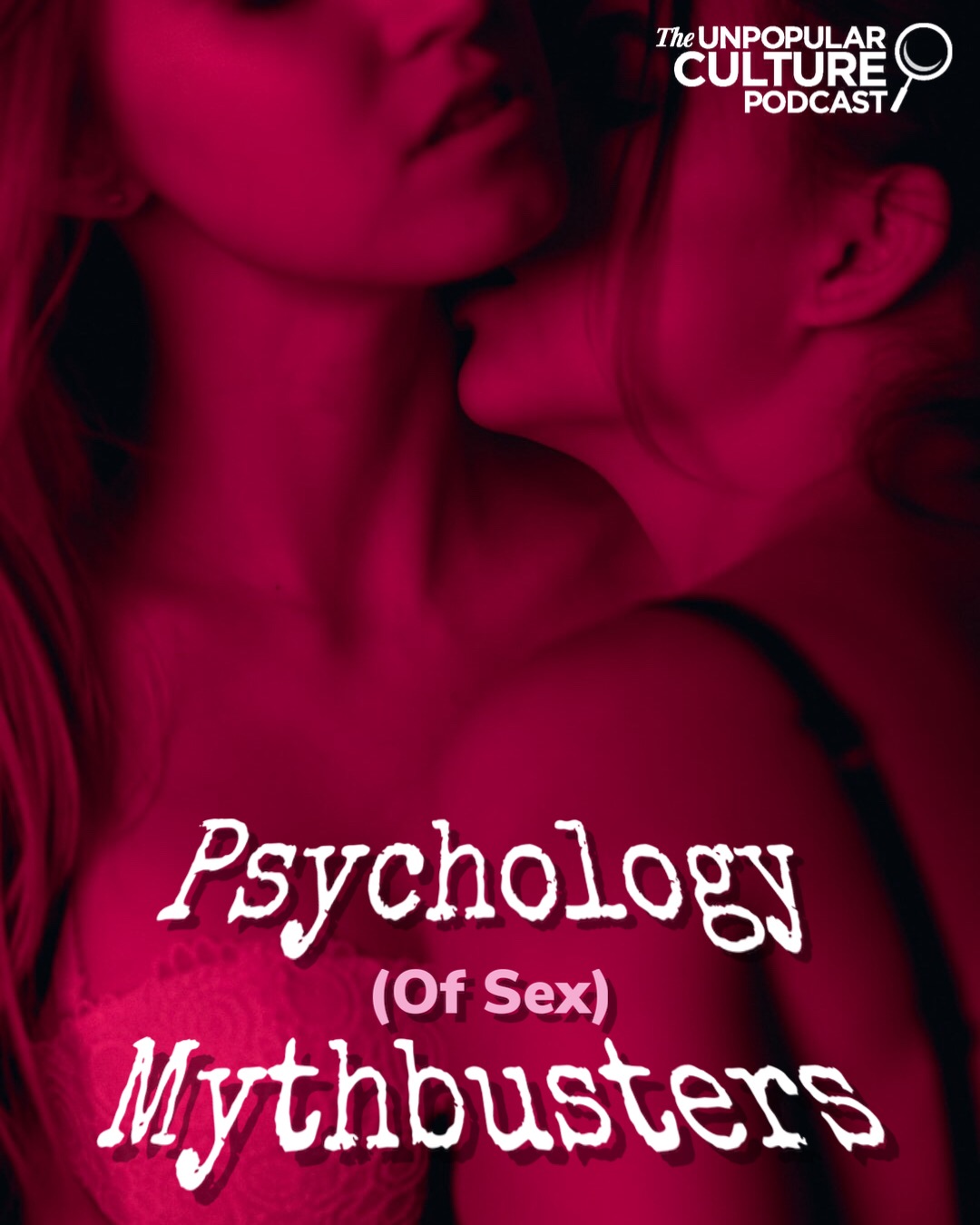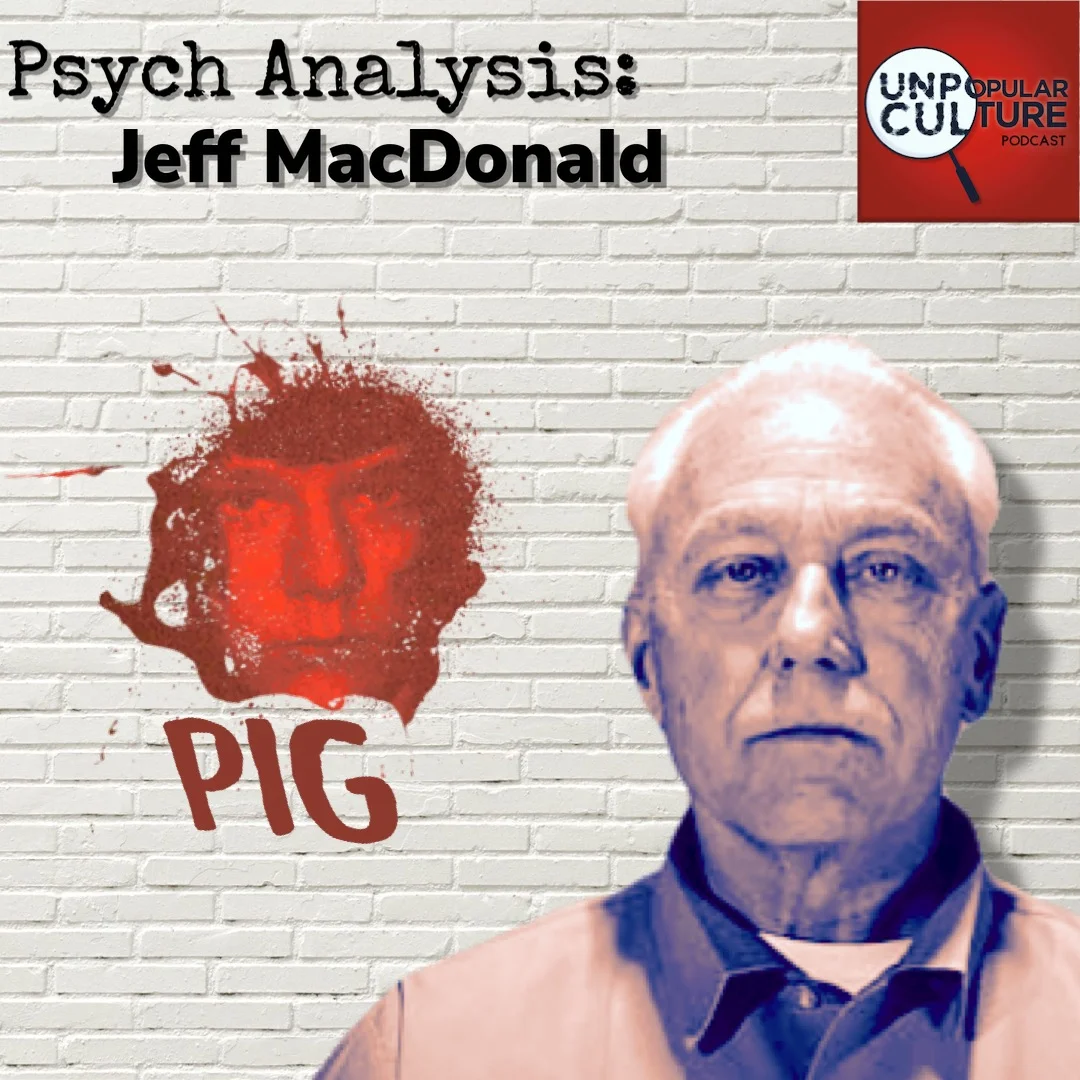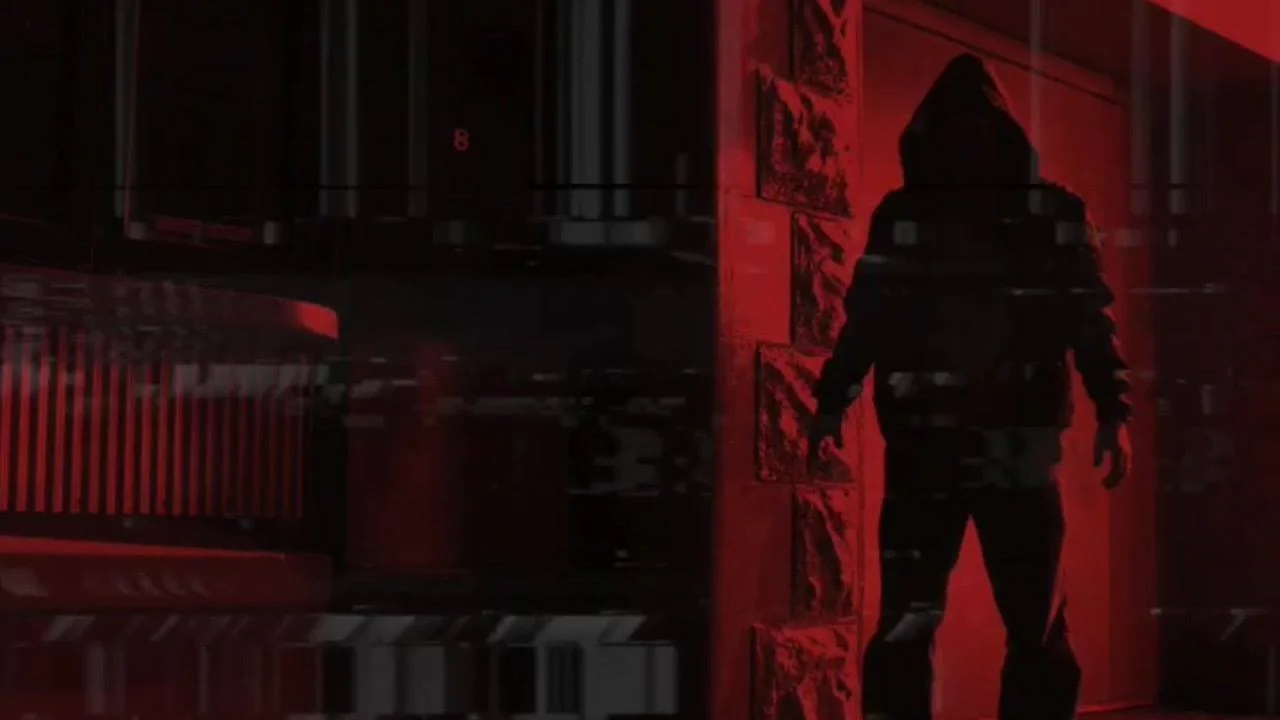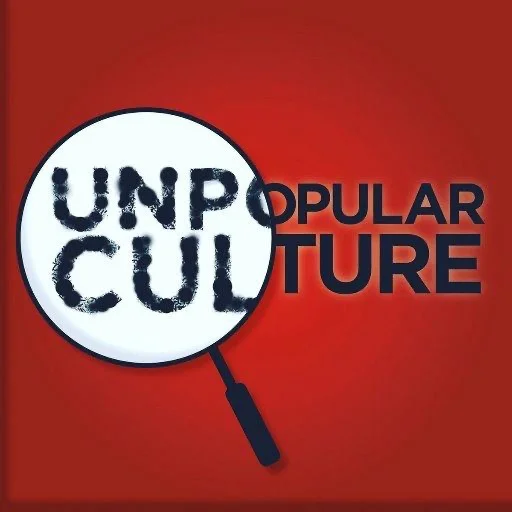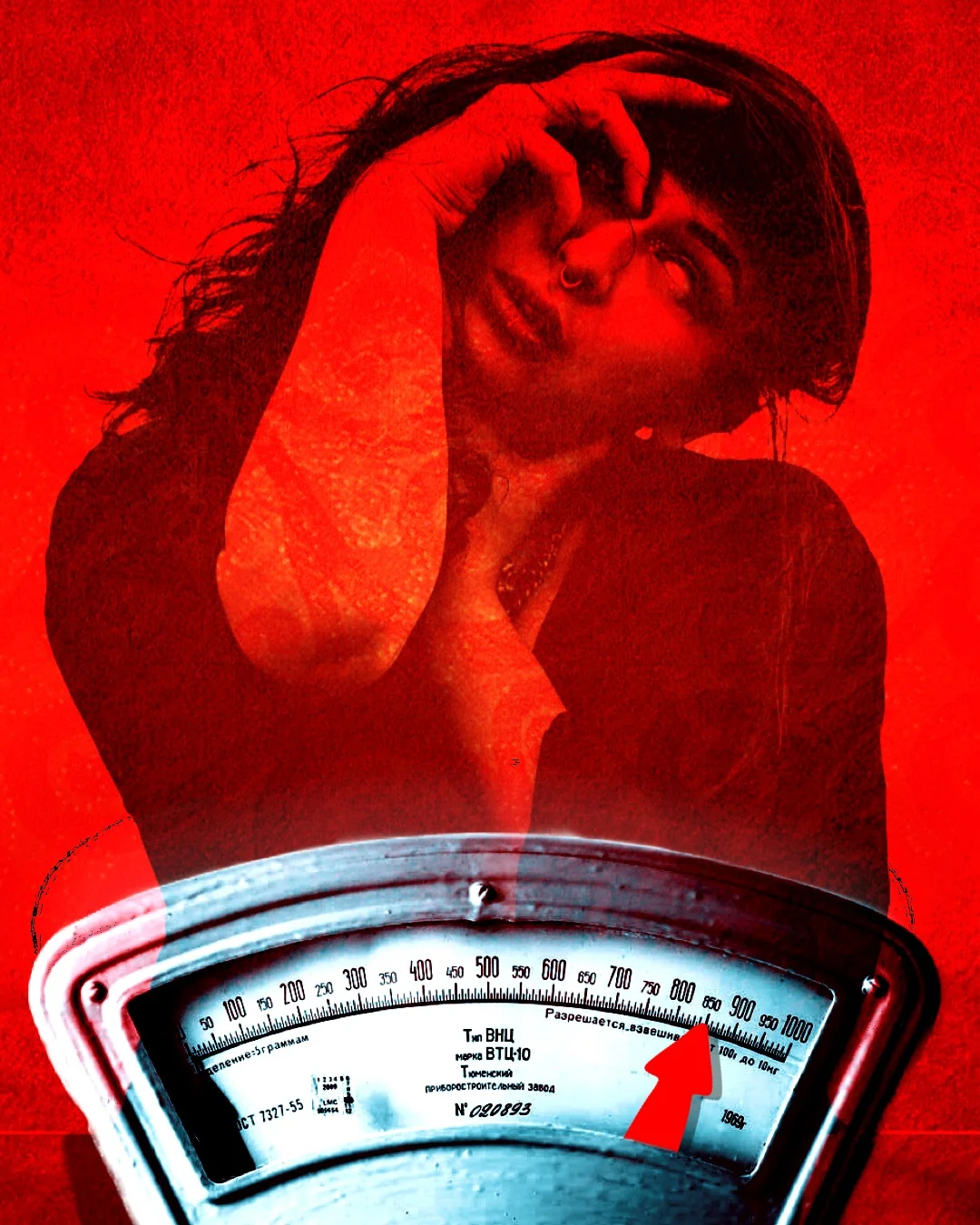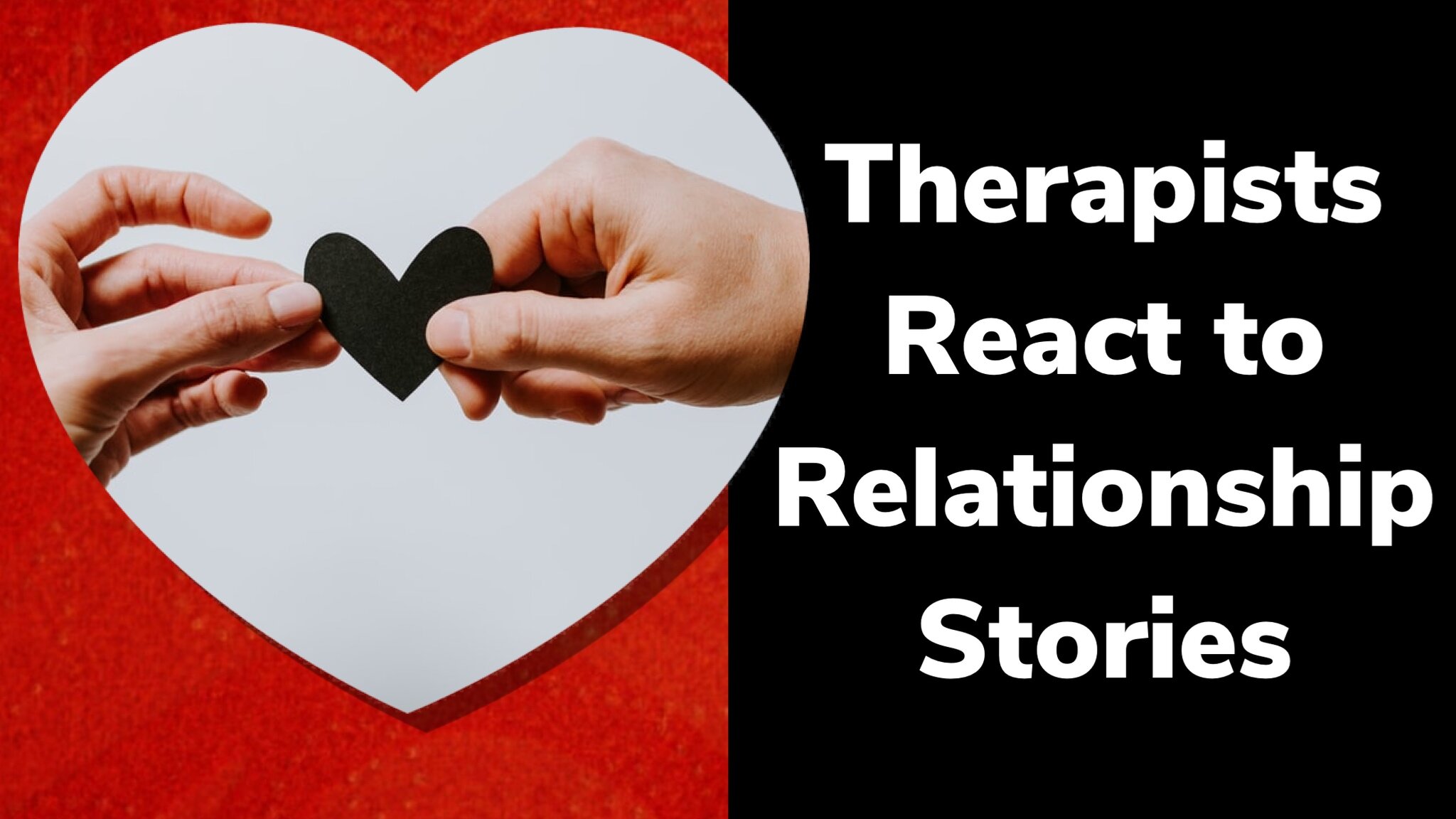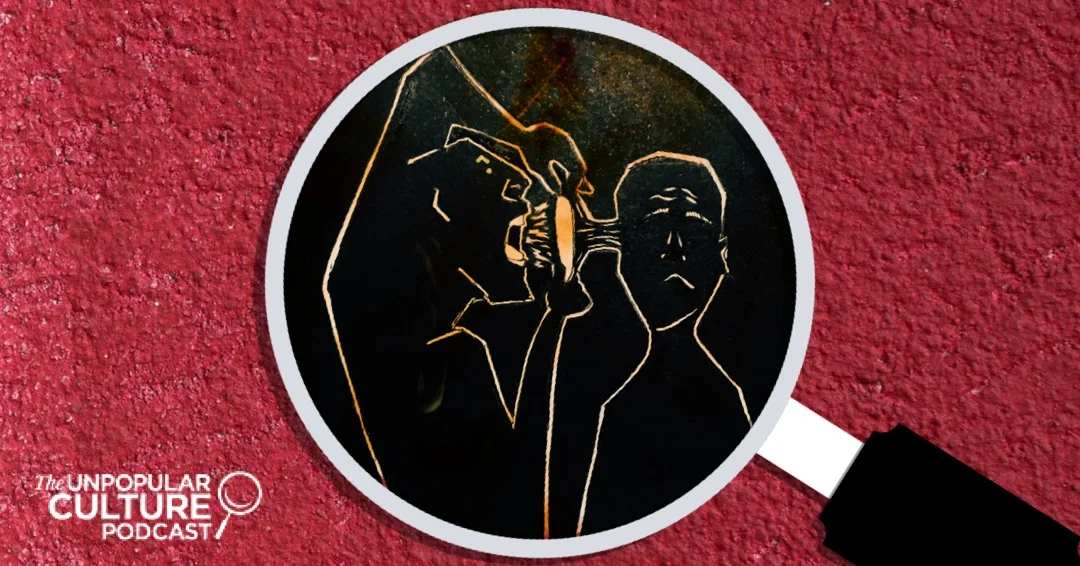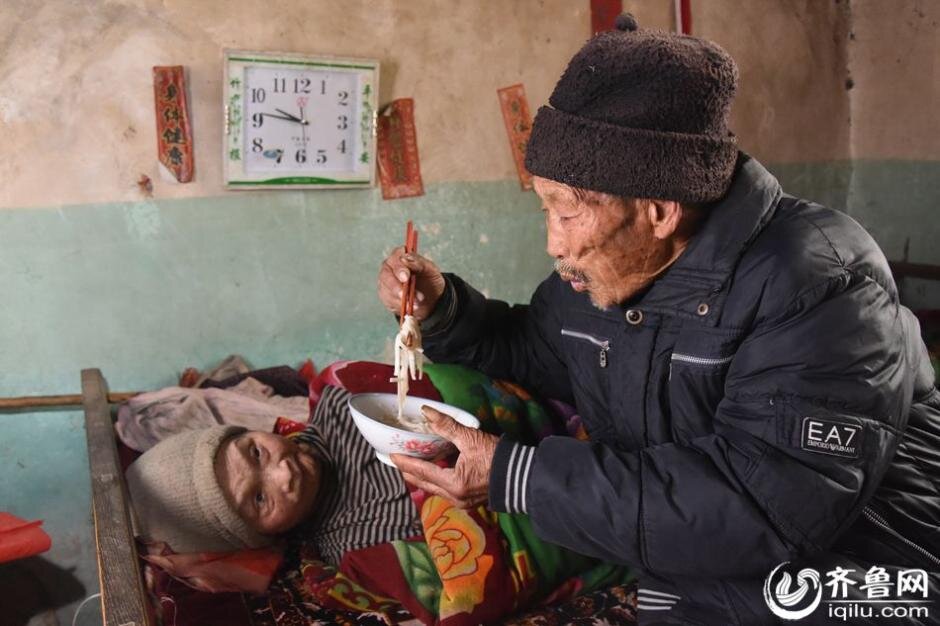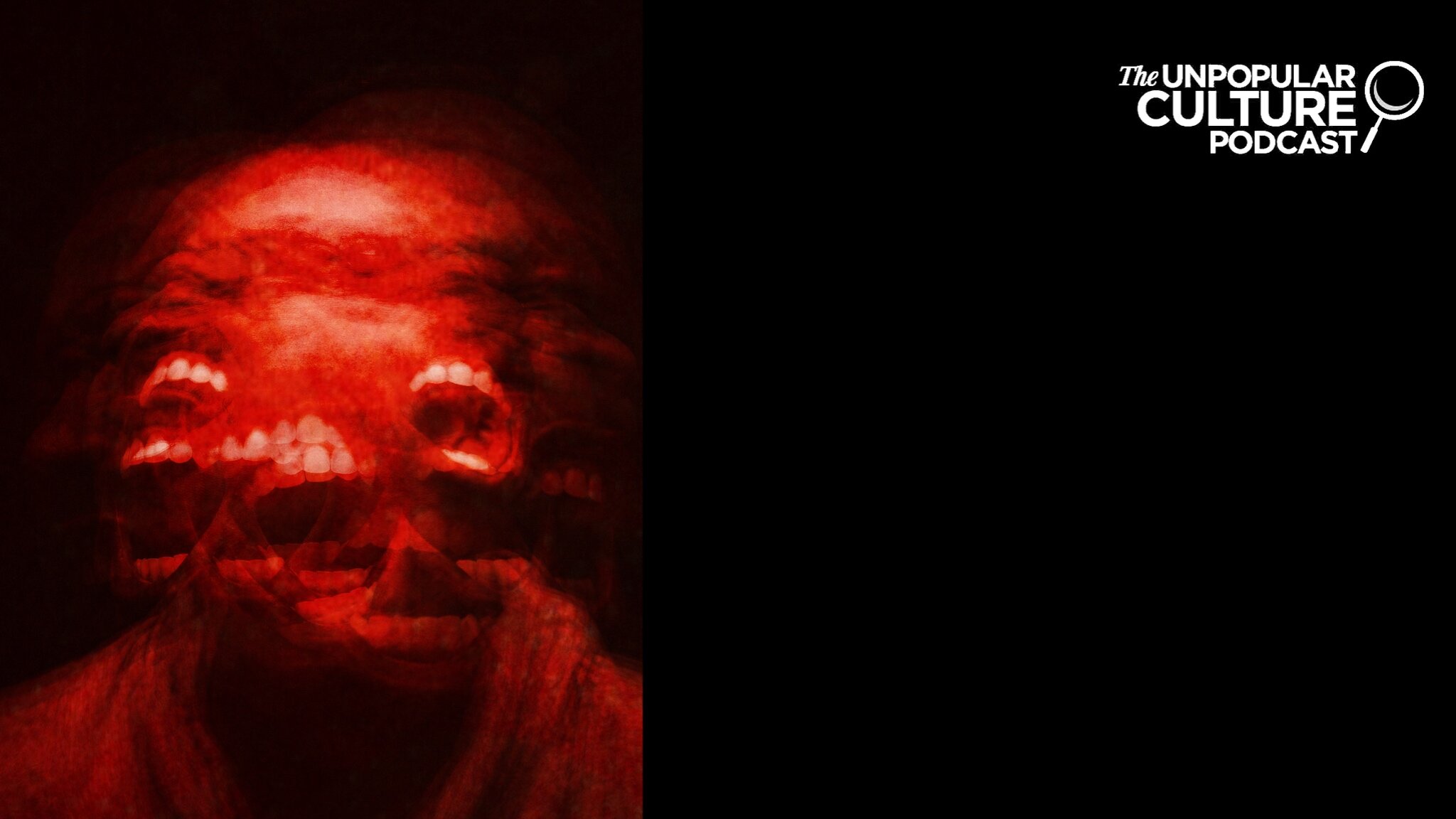In this episode of the podcast, Michael Drane, our resident psycho-therapist is joined once again, by fellow clinician, Justin Krause, to discuss Electro-Shock Therapy. A listener on Twitter wrote in to the show and asked about Electro-shock therapy and whether or not it was effective. Michael and Justin also get into some other ridiculous cures over the years like lobotomies. We hope you enjoy the show!
Read moreEp: 37 - The Dependent Independent Podcast - Behind the Scenes of UPC
In this bonus episode, we visited Nick G., friend of the podcast, over on his show
Read moreEp: 36 - (Stalker Only Episode) Psychology of "S-Town" & John B. McLemore
Newly released to the general public, Unpopular Culture & Psychology in Seattle Podcasts team up to tackle the life and times of John B. Mclemore in the new Series "S-Town".
Become a STALKER for early access, bonus episodes, and behind the Scenes content
Go to --> upcpodcast.com
Click --> Become a STALKER
Let us know how YOU feel!
Email --> hello@upcpodcast.com
► We are not bystanders in today's culture, and we're willing to bet: Neither are you. Unpopular Culture is a podcast where a psychotherapist and a team of dedicated professionals, dive into the broken underbelly of today's society— discovering the weird and the weirdly common. New shows full of case studies, psychological breakdowns and conspiracy theories are released every Tuesday morning wherever you get your podcasts!
Show Notes ► http://bit.ly/2iVdTOH
iTunes ► http://apple.co/2dT1fPu
Google Play ► http://bit.ly/2kw7cHq
Stitcher ► http://bit.ly/2e4yj5y
Tunein ► http://bit.ly/2ldjiSJ
For everything UPC, visit upcpodcast.com
Email us your questions hello@upcpodcast.com
► twitter.com/upcpodcast
► facebook.com/upcpodcast
Read moreEp: 35 - How to Get through Your Work Week - Stalker Questions
In this episode, Michael Drane, our resident psychotherapist, and fellow clinician Justin Krause, give a psychologically sound way to approach the popular dilemma between whether one should Work to Live or Live to Work.
Read moreEp: 34 - Netflix's “The Witness"- The Bystander Effect Reloaded
👇Listen To The Full Episode Below👇
This is our follow-up show to our most popular season 1 episode: Beware the Bystander, about the Bystander Effect and the New York Times story about Kitty Genovese. We gained such a huge response for this episode and are excited to get into all of your questions and comments about the show. Since recording that episode, there have been significant developments to this story, like the popular Netflix documentary "The Witness" supposedly 'debunking' the NYT story, so we'll get into all that.
Michael’s Notes
ACCORDING TO AN ARTICLE PUBLISHED BY THE NEW YORK TIMES ON MARCH 13, 1964, THE FOLLOWING EVENTS ARE TRUE:
"For more than half an hour 38 respectable, law‐abiding citizens in Queens watched a killer stalk and stab a woman in three separate attacks in Kew Gardens. Each time he returned, sought her out and stabbed her again. Not one person telephoned the police during the assault; one witness called after the woman was dead."
Assistant Chief Inspector Frederick M. Lussen is still shocked. The Kew Gardens slaying baffles him‐not because it is a murder, but because the “good people” failed to call the police. “If we had been called when he first attacked, the woman might not be dead now.”
This is what the police say happened beginning at 3:20 A.M.: Twenty‐eight‐year‐o1d Catherine Genovese, who was called Kitty, was returning [from work]. She turned off the lights of her car, locked the door and started to walk the 100 feet to the entrance of her apartment.
Kitty noticed a man at the far end of the lot. Then, nervously, she headed up Austin Street toward Lefferts Boulevard, where there is a call box.
She got as far as a street light in front of a bookstore before the man grabbed her. She screamed. Lights went on in the apartment house on Austin Street, which faces the bookstore. Windows slid open and voices punctured the early‐morning stillness.
She screamed: oh, my God, he stabbed me! Please help me! Please help me!”
From one of the upper windows in the apartment house, a man called down: “Let that girl alone!”
The assailant looked up at him, shrugged and walked down Austin Street toward a white sedan parked a short distance away.
Lights went out. The killer returned to Kitty, now trying to make her way around the side of the building by the parking lot to get to her apartment. The assailant stabbed her again.
“I'm dying!” she shrieked. “I'm dying!”
It was 3:50 by the time the police received their first call, from a man who was a neighbor of Miss Genovese. In two minutes they were at the scene. The neighbor, a 70‐year‐old woman and another woman were the only persons on the street. Nobody else came forward. The man explained that he had called the police after much deliberation. He had phoned a friend for advice and then he had crossed the roof of the building to the apartment of the elderly woman to get her to make the call.
“I didn't want to get involved,” he sheepishly told the police.
WINSTON MOSELY
Kitty Genovese's story was made widely famous by the New York Times shocking article about '37 People Who Did Nothing' and now everyone knows her name and her case is used widely as an example of the Bystander Effect. We're calling this episode RELOADED - because we're elaborating on the story. And in order to give you all the sides of the story, lets start with a lesser-known perspective: Kitty's murderer, Winston Mosely.
According to an alternate story more focused on Mosely, these are the general events. "As Kitty Genovese walked toward the apartment complex, Moseley exited his vehicle, and approached Genovese armed with a hunting knife. Frightened, Genovese began to run across the parking lot and toward the front of her building. Moseley ran after her, quickly overtook her, and stabbed her twice in the back. When later confessing, Moseley said that his motive for the attack was simply "to kill a woman".
Other witnesses observed Moseley enter his car and drive away, only to return ten minutes later. In his car, he changed to a wide-brimmed hat to shadow his face. He systematically searched the parking lot, train station, and an apartment complex. Eventually, he found Genovese, who was lying, barely conscious, in a hallway at the back of the building where a locked doorway had prevented her from entering the building. Moseley stabbed Genovese several more times. Knife wounds in her hands suggested that she attempted to defend herself from him. While Genovese lay dying, Moseley raped her. He stole about $49 from her and left her in the hallway."
According to a witness, Moseley was arrested 5 days after Kitty's murder while stealing a television in Queens. This witness said his face looked "calm as can be"
Winston Mosely fits the profile of someone who is called to have anti-social personality disorder; common street names of this are psychopaths, sociopaths.
A lawyer on the case said Moseley's "confession as to Kitty's killing flowed normally as part of his conversational tone, so it was like I stole a tv and by the way I killed this person." You see this a lot in serial killers and psychopathic behavior, the killer is emotionless, as if they have in the DSM what is called a lack of remorse, indicated by being indifferent to or rationalizing having hurt, mistreated or stolen from another.
It's been suggested that serial killers that kill methodically the way Mosely did, like Ted Bundy have an average IQ of 113 (with the overall average IQ being 100). Mosely was highly intelligent, he had an IQ of 135 and earned his bachelor's degree in Sociology while in prison. Psychopaths are typically highly intelligent, think of Dexter, Ted Bundy, Patrick Bateman from American Psycho. Can you think of any more?
In the Netflix documentary, Moseley wouldn't meet with Bill Genovese but sent a letter to him with a different version of the story where he was just the getaway driver for the real murderer, Dominic, some Mobster. And he was just an innocent on looker. For the psychopathic mind, manipulation is second nature, because they have no emotional guilt about lying. Lying becomes just another tool to get what they want, which is all they care about.
THE BIRTH OF THE BYSTANDER EFFECT
This Kitty Genovese Murder started it all, becoming infamous and sparking decades of research on this phenomenon, eventually the term "The Bystander Effect" or "Genovese Syndrome" was created. This is a sociological phenomenon that states that the more people around to witness an emergency situation, the less likely they are, individually to do something to help. This is a result of what is known as Diffusion of Responsibility. The tendency in all of us to NOT take individual responsibility in a given situation. For example, if you live by yourself, you're more likely to take out the trash on a given day because you're the only one that's gonna do it. If you live with roommates, you have the ability to say "Oh, they'll probably take care of it" and this is our inclination.
It's now 50 years later, Bill Genovese, Kitty's brother, spent seemingly his entire life digging into this story. In the Netflix documentary that so many of our listeners brought to our attention about the follow-up to this case, Bill Genovese self-describes his search for more answers about Kitty's murder as a blatant obsession.
Bill Genovese enlisted in the Vietnam war because he didn't want to be a Bystander. Later, he was seriously wounded, eventually spending the rest of his life in a wheelchair. All of this formed a cycle of obsession, and even in the documentary, you can see his family telling him to "let it go" but he cant.
Unable to cope with the idea that so many people watched his sister die, he looked into the original New York Times Article, collecting more information on the case. As a result of Bill's investigation, we now know much more about the murder, the case, and the all of the holes in that original New York Times article.
It would have you believe that literally 37 people watched the full murder and never called the police or reported anything. And this is not entirely true.
REVISITING THE CASE
The original article gives the impression that there is only a single witness, Robert Mozer, who screamed down out of his window "Hey! Get out of there!" to Winston Mosley when in fact, this is far from the truth, as discovered by Bill Genovese.
Only 5 of reported 38 witness called to take the stand during the original trial
Many neighbors reported hearing the screams, Not just blind screaming but the actual words "Help me!" and "I'm being stabbed"
Prosecution attorney even reported that the very first of five witnesses, Night elevator operator, Charles Skoler, saw entire 1st attack. He then went downstairs and went to sleep. If this first witness had called the police when he saw the attack, they would have been there to save her life.
Witness #2: "Karl Ross" reported in trial that he saw 2nd attack, but never called police the night of. Instead, He called his girlfriend who told him "not to get involved."
Witness #3: Irene Frost heard a shreak. Went to the window, stood there for a minute, and went back to bed. The second time heard "Please help me God I've been stabbed"
The fourth witness, "Sophia" finds Kitty in door way and Kitty died in her arms.
Her son says Sophia talked to paper once and asked if she would help again, Sophia said "of course"
Paper then publishes that Sophia said "I don't want to get involved"
Newspaper seemed to reinforce preconceptions that nobody wanted to help.
Witness #5 Patti says she called police and police said "we already got the call", but this was never logged by the police station. Was she lying? There's something called Confirmation bias: which is the tendency to search for, interpret, or recall information in a way that confirms one's beliefs or hypotheses. So it's possible that she is remembering something different because of the way this story blew up with the idea that no one did anything, and she couldn't cope with that being her.
It's worth understand that eyewitness testimonies are far from reliable.
Scientific American reports that once DNA testing was first introduced, researchers have recorded that 73% of the 239 convictions overturned through DNA testing were based on eye-witness testimony.
One thing that plays a role in what a person remembers is their own personal biases. In a study known as Allport & Postman (1947), participants were shown a comic image of a white man on a bus who is about to assault a scared black man with a razor. Participants of the study were asked after a long period of time, to recall details of the image and reported that it was the black man in the image that was holding the razor. Clearly this was not the case, and the results of the study prove that people's recollection of an event can change overtime to fit they're personal knowledge and understanding of society.
THE BYSTANDER EFFECT: OTHER EXAMPLES
The point of laying this out is that this Netflix documentary, "The Witness" did NOT disprove that her murder was a shining example of the Bystander Effect.
No, it wasn't 38 people who watched and did nothing, but there WERE an alarming number of people who saw, knew exactly what was happening and didn't call the police. If Kitty Genovese had never existed, the Bystander Effect would still be a phenomeno
EXTREME EXAMPLES
"The Richmond High School Incident" - On October 27, 2009, A 15 year old female was gang-raped by more than 15 male students at a homecoming dance in front of dozens of other students who stood around and took photos with their phones, for more than 2 and half hours.
In a message posted on an online alcohol abusive help-group at 12:50 P.M. on March 22, Larry Frostaid wrote: ''The conflict with my ex-wife was tearing me apart, and when [my five-year-old daughter] was asleep I got wickedly drunk, set our house on fire, went to bed, listened to her scream twice, climbed out the window and set about putting on a show of shock, surprise and grief to remove culpability from myself,'' and out of the 200 people that saw the message, only 3 reported it.
EVERYDAY RELATABLE EXAMPLES
witnessing a car accident, or a person broken down on the side of the road, if you were one of few left on earth and passed a borken down car, you'd be more likely to help them, but in daily reality, as you see all these other cars pass too, you're obviously much less likely to help.
Daily Chores, like we mentioned taking out the trash or vacuuming, you're more likely to do if you're alone, because you're the only one that will, but less likely if someone else could.
Think of 2 people in a space, yes, but then think of a dorm floor of A nerdy kid is walking through a school hallway in a sea of other students, a bully pushes his books down, and no one stops to help. Kitty deserves the legacy, her murder did good for people to prevent in the future...
Unpopular Culture Podcast is a psychology podcast hosted by Professor & Psychoanalyst Michael Drane. With help from professionals in different fields, he seeks to shine light into the broken underbelly of society.
Listen as he takes on the psychology behind subjects like:
True Crime: serial killers, murders, stalkers, cults, forensic analysis
Psychology: mental illness, social phenomenon, mob mentality, psychoanalysis, etc.
Culture: Sexuality, Satanic Panic, love, Tv analysis, movie analysis.
We are an independent psychology podcast. Help us keep UPC free of ads and on the air. Please consider supporting the show and get access to our "Stalkers Only" archive, and help be a part of the creative process.
Support the Show! —> patreon.com/upcpodcast
Follow Us On These Social Media Platforms
You Can Follow Us Here Or Anywhere You Find Awesome Podcasts
Watch The Episode On YouTube
Ep: 33 - Black Mirror’s “The Entire History of You" - Why People Cheat & Hold Grudges (Stalker Only Episode)
We break down the third episode of Black Mirror, "The Entire History of You." The episode covers the psychology of cheating and memory. What is NEO-LUDDISM? What things effect our memory? Aging? Technology? What percentage of married people experience cheating?
Read moreEp: 32 - The 5 kinds of Stalkers - The Psychology of Stalkers
We break down the psychology behind the five 'types' of stalkers, analyzing their psychological state. Psychiatrist Paul Mullen, interviewed 145 convicted stalkers at an asylum it led him to conceptualize five stalker criteria or types, which are considered the gold standard in classifying stalker behavior today. THE REJECTED. THE INTIMACY SEEKER, THE INCOMPETENT, THE RESENTFUL, THE PREDATOR,
Read moreEp: 31 - The Psychology of Dreams & Dream Analysis - With Kirk Honda
Michael Drane is joined by Dr. Kirk Honda of The Psychology In Seattle Podcast to answer a question from our listener on Twitter. What happens when we are dreaming? Does are dreams mean something? Can dreams predict the future? A psychotherapist and a marriage and family therapist sit down to discuss.
Read moreEp: 30 - Black Mirror's “Fifteen Million Merits" - Psychology of Hive Mentality & Cuckolds
In this episode of Black Mirror's “Fifteen Million Merits" we talk about Illusion of Choice, virtual identity, American Dream monotony, CBT (Cognitive Behavioral Therapy), CUCKOLD FETISH,hive mentality and more. We will review this episode and give you the psychology of Black Mirror.
Read moreEp: 29 - Psychopaths VS. Narcissists
In this episode, Michael and Justin discuss these two listener questions
Read moreEp: 28 - Black Mirror's “The National Anthem"-The Psychology of Humiliation
The Psychology of Black Mirror, is where we dive into the psychology behind the Netflix original series, Black Mirror. In this episode "The National Anthem." we discuss the British prime minister Michael Callow having sexual intercourse with a pig to save Princess Susannah.
Read moreEp: 27 - How to Convince Someone that Needs Help to Get it
👇Listen To The Full Episode Below👇
HOW DO YOU CONVINCE SOMEONE THAT NEEDS HELP, TO GET IT?
In the past week I have binged your podcast! Now that I've gotten the compliments out of the way. My sons 18 year old girlfriend was diagnosed a few years ago with depression and anxiety. She hasn't been taking any prescription medications for her condition for well over a year now, Over the past month, her depressive symptoms have been bad. My son has strongly suggested that she go sees professional help again, but she seems to be shrugging it off. I have also talked to her about getting help, because I have have suffered with the same condition for years. All of this being said, how do you convince someone who needs help to get it?
ENVIRONMENTAL CLUES
WHAT HAPPENED IN THE LAST MONTH TO MAKE THIS HAPPEN?
Psychologists think environmental factors are awesome! Obviously not for the person suffering from the illness, but for the therapists, being able to see what triggers the person is helpful in diagnosis and treatment.
WHAT FLAVOR OF DEPRESSION DO YOU HAVE?
What are her depressive symptoms? Because they range quite a bit, All the way from mild social withdrawal, laying in bed a little bit more, binge eating not eating, or eve3n worse: engaging in self-harm behavior or attempting/threatening suicide? Gaining weight, losing weight?
WE ARE ADVOCATES OF PRESCRIPTIONS AS A LAST RESORT.
Not to say that there aren't people out there that need certain medications to cope with severe mental disorders. But the tendency to take medications like Wellbutrin and other anti-depressants the moment you feel sad is running rampant these days. It is encouraging to hear that the 18 year old has only had issues in the past month. I would resist the temptation to jump back on medication if she has been off of it for a more than a year, successfully. Try to look at what environmental trigger was present in her life at that time, about a month ago.
We actually believe that certain psychotropics can cause brain damage over a long period of time. Justin Krause cleverly makes the analogy on air that Medications are not surgical, the pill you take doesn't affect just that specifically desperate area of your brain specific to your illness. No, it works like chemotherapy, attacking it all like a battlefield. And the side effects are not scarce.
For Depression and Anxiety, we suggest:
Exercise, Meditation, Mindfulness, engaging in thing you like, interacting with people. The best cure for depression is activity. Engage, do things.
Unpopular Culture Podcast is a psychology podcast hosted by Professor & Psychoanalyst Michael Drane. With help from professionals in different fields, he seeks to shine light into the broken underbelly of society.
Listen as he takes on the psychology behind subjects like:
True Crime: serial killers, murders, stalkers, cults, forensic analysis
Psychology: mental illness, social phenomenon, mob mentality, psychoanalysis, etc.
Culture: Sexuality, Satanic Panic, love, Tv analysis, movie analysis.
We are an independent psychology podcast. Help us keep UPC free of ads and on the air. Please consider supporting the show and get access to our "Stalkers Only" archive, and help be a part of the creative process.
Support the Show! —> patreon.com/upcpodcast
Follow Us On These Social Media Platforms
You Can Follow Us Here Or Anywhere You Find Awesome Podcasts
Watch The Episode On YouTube
Ep: 26 - Top Ten Pop Culture Couples - Psychology of LOVE
👇Listen To The Full Episode Below👇
The FUNCTION of Love is Part 1 of a 2 part Valentines Day Event explaining both sides of the coin when it comes to Relationships. In this first, Michael and Corey explain the Psychology behind a functioning, successful, relationship. And as they go through, they'll give ten shining examples of some modern couples that exemplify these 'functioning' qualities.
In 1981, just before he shot president Ronald Reagan, John Hinkley wrote this letter to Jodie Foster, the object of his obsession: "This letter is being written only an hour before I leave, Jodie, Im asking you to please look into your heart and at least give me the chance with this historical deed to gain your respect and love, I will love you forever."
— John Hinkley
As we compiled our list of ten pop-culture couples that exemplify FUNCTIONAL relationships, we used a few psychological relationship theories:
1. THE 3 PILLARS OF A RELATIONSHIP: TRUST, COMMUNICATION, RESPECT
If one goes down, so do they all. These three pillars represent a sort of hypothetical table for the relationship to ship on. They are Trust, Respect and Communication. And if one fails, you can no longer continue to have the others, as the relationship table would collapse.
2. RELATIONSHIP BANK ACCOUNT
Better keep your withdrawals the same as your deposit. This is a metaphorical bank account for a relationship in which two people are both withdrawing and depositing.
3. THE 5 LOVE LANGUAGES
Gary Chapman, in 1995, wrote a book called The 5 Love Languages. This theory claims that these are exhaustive, there are no others. Each person has one primary and one secondary love languages. The best way to figure out what love language your partner needs the most is to watch what the exhibit to other people. People naturally tend to love in the way they prefer to receive love.
1. JANE & JOHN OF "MR. & MRS. SMITH" (2005)
Mr. and Mrs. Smith, are two people that are trained in their day jobs as secret agents to be skeptical and untrusting. But their relationship works because they can eventually only trust each other.
2. JOE & KATHLEEN OF "YOU'VE GOT MAIL" (1998)
Communication is key...And in this typical rom-com, the two lovers are haters in RL. They have opposing businesses that keep them from being civil in reality, yet they are anonymously in an online romantic relationship. They discover that when they set everything aside, they actually really do care about each other, and in this way, it's like their unconventional method of communication is what saves their relationship in the end.
3. BRIENNE OF TARTH & JAIME LANNISTER OF "GAME OF THRONES"
Through Brienne's Strength and loyalty, these two have formed an odd but powerful relationship over the Game of Thrones seasons. Though at first it seemed as though they were complete opposites, they molded their insane respect for the other into an undying bond between the two.
4. FRANK & CLAIRE UNDERWOOD OF "HOUSE OF CARDS"
Its all about what they can do for each other, the strategic advantage of being together has always been at the top of their individual priority lists. Though traditional romantic love may seem be missing, it shown to be true through their chess moves in life together.
5. BARACK & MICHELLE OBAMA
This famously regal and poised family and married couple, Michelle and Barack Obama have been on record countless time attributing their own personal success to that of their partner. It doesn't get any more balanced in a relationship bank account than these two driven love-birds.
6. SEAN & EVE ARCHER OF "FACE/OFF (1997)"
As Corey calls John Travolta and Nicholas Cage in the podcast, Face Off Face Strokers, this family finds comfort from stroking each others faces, proving to be a very literal example of The Touch Love Language.
7. NOAH & ALLIE OF "THE NOTEBOOK" (2004)
He sent her letters every day she was gone and then at the end she is only pulled out of her Alzheimer's by him reading their love story to her. These letters and their words are the only reason they have even been together and continue to fight to live in old age. *quiet sobbing* so beautiful.
8. HENRY & LUCY OF "50 FIRST DATES" (2004)
These two are adorable. Lucy, a victim of a car accident, now has short term memory loss and wakes up reset every day. Henry, her suitor, takes on the challenge of re-introducing himself to her every day and convincing her to love him. Which is an extreme amount of quality time.
9. DU YUANFA & ZHOU YU'AI - RL COUPLE
Acts of Service - The Fourth Love Language
For the last 57 years, Du Zuanfa has been a shining example of the "Acts of Service" love language for his paralyzed wife, Zhou Yu'Ai. In 2015, an article surfaced, revealing the beautiful relationship of these two, stating: "A devoted husband has spent the last 56 years caring for his bed-ridden wife, who lost all sensation in her body when she was 20."
10. GIFT OF THE MAGI
Corey's notes will continue to read as follows:
"PocketWatch Dumbass and Long Haired Dumbass"
#PocketWatchDumbass
Unpopular Culture Podcast is a psychology podcast hosted by Professor & Psychoanalyst Michael Drane. With help from professionals in different fields, he seeks to shine light into the broken underbelly of society.
Listen as he takes on the psychology behind subjects like:
True Crime: serial killers, murders, stalkers, cults, forensic analysis
Psychology: mental illness, social phenomenon, mob mentality, psychoanalysis, etc.
Culture: Sexuality, Satanic Panic, love, Tv analysis, movie analysis.
We are an independent psychology podcast. Help us keep UPC free of ads and on the air. Please consider supporting the show and get access to our "Stalkers Only" archive, and help be a part of the creative process.
Support the Show! —> patreon.com/upcpodcast
Follow Us On These Social Media Platforms
You Can Follow Us Here Or Anywhere You Find Awesome Podcasts
Watch This Episode On YouTube
Ep: 25 - Cult Leaders Vs. Serial Killers - Psychology of Cult Leaders, Serial Killers, & Self-Fulfilling Prophecy
We are here to answer these questions. 1: What are the differences between the infamous cult leader Jim Jones vs. Serial Killers? And our favorite serial killer? 2: Do you believe in self-diagnosis? Should we be able to diagnose ourselves or should it be done by a professional?
Read moreEp: 24 - The Movie “Split" (2017) Review - The Psychology of Multiple Personalities
Michael Drane is joined by Dr. Kirk Honda, of the Psychology in Seattle Podcast to breakdown the human psyche. We just watched the recent M. Night Shyamalan movie in theaters, starring James McAvoy and focusing on Dissociative Identity Disorder (aka Multiple Personalities).
Read moreEp: 23 - The Psychology of Schizophrenia - The Psychology of Mental Disorders
👇Watch Below👇
In this episode, Michael and Justin breakdown questions about Schizophrenia and other questions from you! This episode marks the end of Season 1, but we will be back in 2017 with all NEW EPISODES! Questions, Comments, or Topic Ideas? Email us at hello@upcpodcast.com
Our Short Videos On Schizophrenia
Unpopular Culture Podcast is a psychology podcast hosted by Professor & Psychoanalyst Michael Drane. With help from professionals in different fields, he seeks to shine light into the broken underbelly of society.
Listen as he takes on the psychology behind subjects like:
True Crime: serial killers, murders, stalkers, cults, forensic analysis
Psychology: mental illness, social phenomenon, mob mentality, psychoanalysis, etc.
Culture: Sexuality, Satanic Panic, love, Tv analysis, movie analysis.
We are an independent psychology podcast. Help us keep UPC free of ads and on the air. Please consider supporting the show and get access to our "Stalkers Only" archive, and help be a part of the creative process.
Support the Show! —> patreon.com/upcpodcast
YOU CAN FOLLOW US HERE OR ANYWHERE YOU FIND AWESOME PODCASTS
SPOTIFY
ITUNES
STITCHER
PLAYERFM
IHEARTRADIO
👇Listen Below👇
Ep: 22 - Psychology of Learned Helplessness & Brainwashing Skeptics
In this Bonus-Exclusive-Candid UNPLUGGED episode, Michael is joined by Corey and Psychotherapist Justin Krause to answer listener questions about mental illness and racial implications (if there are any). Should Patty Hearst have been pardoned for terrorism? Would Paris Hilton get away with that?
Read moreEp: 21 - Generation Gaps - The Psychology of Millennials, generation Xers, and Baby Boomers
We dive into a breakdown of generations dating back before World War II, including: Baby Boomers, Boomers 2, Gen-X, Gen-Y (Millenials) and even as recent as Gen-Z. We collectively breakdown the unprecedented impact that technology has had on the three most recent generations, comparing very different experiences of gameboys and iPads to 8-tracks and records, modern-day navigation versus paper maps
Read moreEp: 20 - Bro Science and the Winter Blues (Stalker Only)
Psychotherapist Michael Drane is joined by Justin Krause and together they tackle a few psychological questions about seasonal depression. What is McDonaldization? Is it better to live in a gloomy, rainy place? Or a more efficient but culture-less place? How does culture effect our mental health?
Read moreEp: 19 - “Cicada" Digital Treasure Hunt (feat. Jesse Haynes of Cryptid Creatures Podcast)
We are joined by author and moderator of the Cryptid Creatures Podcast, Jesse Haynes, to piece together what IS known about the "most elaborate and mysterious puzzle of the internet age" - the treasure hunt and modern folktale known as Cicada 3301.
Read more

